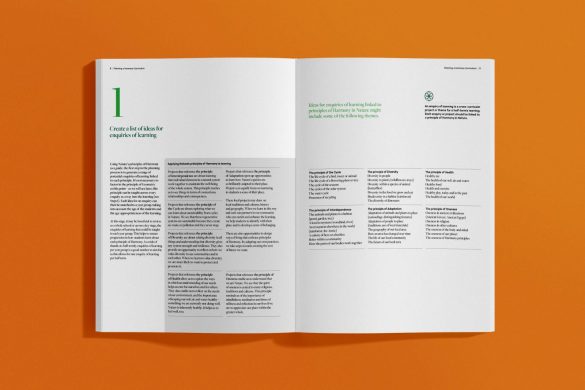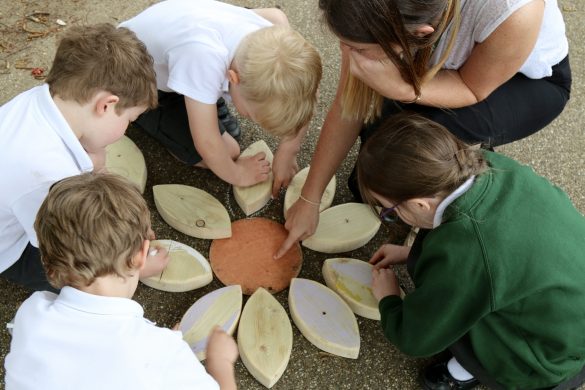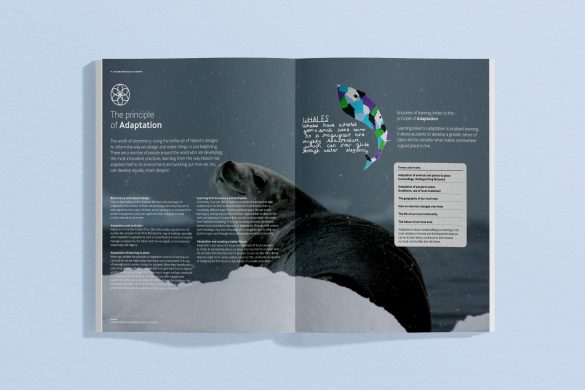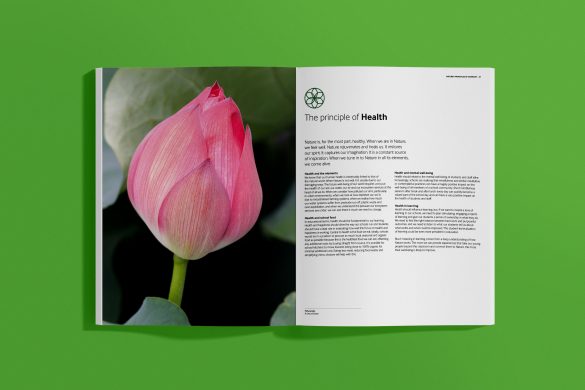How to create ideas for enquiries of learning

Everything you need to know to take the first steps towards developing a Harmony curriculum
The principles that maintain Harmony in natural systems teach us about ways of living and working that are wholly sustainable. By integrating these principles of Harmony into learning, we enable students to develop an understanding of how the world works. They start to see that natural systems are regenerative, interdependent and richly diverse, and they learn to appreciate that Nature’s principles of Harmony can guide us in pursuing ways of living and being that are equally sustainable, healthy and harmonious.
What are the starting points for Harmony learning?
For educators looking to develop learning based on principles of Harmony, there are three key elements to consider:
- 1. Creating project-based enquiries of learning that reference one or more principles of Harmony. In most cases, an enquiry (which provides the focus for the learning) will run over a half term or six-week block.
- 2. Using questions to map out a clear sequence for the learning within a half-termly enquiry. These questions should lead to a meaningful outcome or celebration of the learning.
- 3. Finding opportunities within each enquiry of learning to apply and secure subject-specific skills and knowledge.
How can Harmony principles be applied to learning?
Usually the process of planning what will be taught starts by referencing the National Curriculum and pulling objectives into a planning document. This is a very logical thing to do, but when National Curriculum objectives drive the learning, and when learning is organised in terms of separate subjects, there is a danger that the learning experience becomes disjointed and disconnected. It can all feel rather piecemeal and even pointless from a student perspective. Instead, when planning a Harmony curriculum, Nature’s principles of Harmony are the starting points. From here, project-based enquiries of learning can be planned to frame learning across all subjects.
The first step in this ‘back to front’ planning process is to generate a range of potential enquiries of learning linked to each principle of Harmony in Nature.

The principle of Interdependence
Enquiries that reference the principle of Interdependence are about learning that individual elements in a natural system work together to maintain the well-being of the whole system. This principle teaches us to see things in terms of connections, relationships and consequences. Enquiries of learning linked to this principle might focus on the animals and plants in a habitat such as a pond, forest or even a single tree. Equally, they might explore how the parts of our bodies work together or how people work together within a community.
The principle of the Cycle
Enquiries that reference the principle of the Cycle explore what we can learn about sustainability from cycles in Nature. We see that these regenerative systems are sustainable because they create no waste or pollution, and we see that they never stop. These projects could focus on the life cycle of a bird, insect or flowering plant, on the cycle of the seasons or the water cycle, or on the importance of recycling in creating sustainable ways of living.


The principle of Diversity
Enquiries that reference the principle of Diversity explore the strength and resilience diversity brings to any system. They provide an opportunity to reflect on how we value diversity in our communities and in each other. Enquiries of learning linked to the principle of Diversity might celebrate diversity in people, explore the diversity of food we grow and eat or focus on the biodiversity that exists within a habitat such as a rainforest.
The principle of Health
Enquiries that reference the principle of Health allow us to explore the ways in which an understanding of our needs helps us care for ourselves and for others. They also enable us to reflect on the needs of our environment, and the importance of keeping our soil, air and water healthy – something we are currently not doing well. Nature is inherently healthy. It helps us to feel well, too. Students might learn about the health of our soil, air and water, the importance of healthy eating and exercise, or healthy play, today and in the past.


The principle of Adaptation
Enquiries that reference the principle of Adaptation open up opportunities to learn how Nature’s species are so brilliantly adapted to their environment and to nurture in students a sense of their place. Enquiries of learning linked to the principle of Adaptation could allow students to explore how animals and plants are adapted to life in a specific habitat, how different communities of people have adapted to the places they live in, or how the community or the area they live in have changed over time.
The principle of Oneness
Enquiries that reference the principle of Oneness enable us to understand that we are Nature. We see that the spirit of oneness is central to many religions, traditions and cultures. This principle reminds us of the importance of mindfulness, meditation and times of stillness and reflection in our lives if we are to appreciate our place within the greater whole. Enquiries of learning linked to this principle might explore how an understanding of oneness shaped life in Ancient Greece or Ancient Egypt, or how oneness is expressed in different religions or cultures today.

It’s not necessary to factor in the principle of Geometry at this point, as this principle can be taught across every enquiry as a way into the learning each week.
Once you have drawn up a list of ideas for enquiries of learning, each idea can then be matched to a year group, taking into account the age of the students and the age-appropriateness of the learning.
The next step is to decide on enquiry questions that will act as the title for each enquiry of learning, and to order these so the learning flows well throughout the school year.



